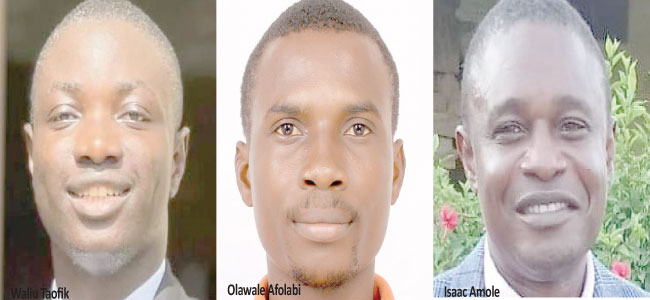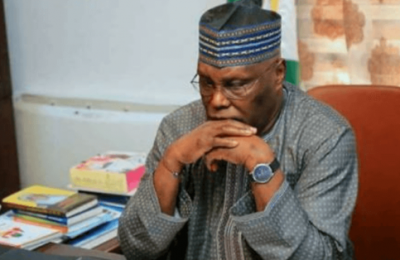
On Tuesday, Nigeria and Nigerians will celebrate Independence Day, marking 64 years of the country’s freedom from British rule. In the existence of any country, 64 years is a landmark age replete with history, mistakes, and potential. YUSUF ABDULKADIR, AWAU ADEGOKE, AYOMIDE MAKINDE, AYO AKANO and OLUWADARASIMI FAJOBI sampled the opinions of some Nigerians on this issue. Their views:
Waliu Taofik

Nigeria at 64 brings up mixed feelings for me. On one hand, we have achievements to celebrate, like refining our crude oil. However, I feel disappointed with our leaders and people. Leaders talk about resilience but live extravagant lifestyles, business leaders maintain monopolies and universities keep raising fees. There is a troubling culture of corruption among followers, where hard work is no longer valued. Instead, many are focused on smart but illegal ways to succeed. I wonder if Nigeria can truly improve, given our weak foundation. Many people are not sad about the country’s issues ─ they are rather upset that they are not personally benefitting from the situation.
Olawale Afolabi
I feel it is Nigeria at four. That may seem harsh but it is the reality. The assertion above is not unconnected with the replicating nature of the problems that have faced the country since independence. Nigeria at 64 needs to start delivering the goodies of governance to her populace. The economy, security, agriculture, and infrastructure of the country need to be given the best of attention. Presently, there is no hope for the common man. The leaders need to be empathetic and the citizens need to be politically conscious to keep the government on their toes.
Abdulazeez Ozovehe
At 64, Nigeria’s journey presents a stark contrast between quantitative democracy and the absence of qualitative governance. Our democratic structure exists, but corruption and failed leadership have eroded the essence of its benefits. Once hailed as Africa’s giant, we now struggle with insecurity, poor economic management, and systemic failures. The hope for progress persists, but the question remains: How long must we wait for meaningful change? As citizens, we yearn for leadership that prioritises equity, development, and transparency. Nigeria at 64 is a call for action, not passive hope.
Isaac Amole
Nigeria is a country blessed by God. However, despite our abundant natural resources, demographic advantages, and cultural diversity, we have not made much progress at 64. Ongoing challenges such as insecurity, corruption, and economic volatility continue to hinder national progress. While certain sectors have made significant strides, there is still much to be done to improve the quality of life for the average Nigerian. The resilience and ingenuity of the Nigerian people are invaluable assets. Looking ahead, promoting unity, prioritising accountable governance, creating fair opportunities, and instilling the fear of God in the hearts of Nigerians would be crucial to realising the country’s full potential.
AbdulHamid Adejumo
To the pessimist, Nigeria seems stagnant, with claims of a struggling economy and hardships, much like the chorus from the 1980s. While some challenges remain undeniable, we have much to celebrate — our resilience, grit, and progress. We are not where we were in 1960. Evolution comes with mistakes, but it is far better than stagnation. Nigeria is advancing in entrepreneurship, innovation, and human capital. The journey is not easy, but we are moving forward. At 64, I proudly celebrate Nigeria, wishing peace, prosperity, and progress to all.
Alarape Sodiq
Every year we celebrate our Independence, I see us still crawling around getting it right. Both our leaders and we the followers are not ready to hold the bull by the horns. For this country to move forward, we need right-minded people in the realm of affairs while we the followers would be ready to follow suit. Without that, we would still be where we are.
Adeyinka Olaitan
Our 64th Independence Day feels more like a reminder of unfulfilled potential. The nation’s ethnic disparities, rooted in the forced amalgamation of 1914, have made the country a unique state facing unique problems. Also, military intervention in the administration of the country has hindered progress. However, Blaming history is no longer viable. We need to wake up and face reality. The managers of the socio-political affairs of the country, over the years, have failed to guide Nigeria towards true nationhood. Clannishness and ethnic chauvinism displayed in Nigerian politics erode citizens’ faith in unity. Instead of self-praise and political maneuvering, national days should emphasise truth, reconciliation, and hope. Overall, I see the country as a crawling adult without significant hope of walking.
Damilola Taiwo-Abdul
When I think of how Nigeria could be better and juxtapose it with our current reality, I cannot but shake my head in shame. A nation that was once renowned as the ‘Giant of Africa’ could no longer live to its name due to bad leadership and lack of patriotism. Nigeria at 64 should be celebrated across the board because we could be likened to a 64-year-old man but one who is crawling, one who cannot fend for himself, one who makes life difficult for his children. Hopefully, in years to come, we get better leadership and infrastructural development that will make us an enviable country once again.
Israel Adebayo
At 64, Nigeria has made great changes in each sector and also faced some immense challenges such as corruption, insecurity, ethnic, and religious tension, etc. Same as there are challenges, but there is also progress in the sectors/aspects of the economy through infrastructural development, technology, cultural exchange, and economic growth which are the most essential aspects indicating that the country has experienced progress since 1960. This shows progress in economic growth, which includes GDP growth, diversification, investment, infrastructural development, and so on. Looking at all of these, Nigeria’s diversity is her strength. We should embrace our differences and work together towards a united and prosperous country.
Morounfolu Akinyele
Sixty-four years and still moving forward — a significant milestone that reflects decades of progress and challenges. Nigeria’s journey has been one of contrasts, from its abundant natural and human resources to persistent socio-political and economic struggles. Our cultural diversity is both a strength and a challenge, with a vibrant global cultural presence but ongoing issues like inequality, corruption, and tribal conflict. Critical investments in education, economic opportunities, and institution-building are essential for growth. Despite obstacles, Nigeria has excelled in fintech, entertainment, agriculture, and youth-led innovation. Our resilience points to a brighter future.
Olatunji GodsCovenant
At 64, Nigeria, often called the ‘Giant of Africa’, falls short of its potential. Despite a population of over 200 million, with 60 percent under 30, the country is not effectively harnessing its human capital, particularly the youth. Issues such as an outdated education system, a high unemployment rate, and a skills mismatch are major barriers. To restructure, Nigeria must prioritise digital literacy, entrepreneurship, vocational training, and mentorship. Moreover, youth engagement in governance, leadership, and policy-making is crucial. Creating innovation hubs and encouraging political participation are essential steps to tap into Nigeria’s vast youth potential for sustainable growth and development.
Moses Oyelowo
My reflection on Nigeria at 64 is a mix of progress, hope, and concern. Nigeria is blessed with many ethnic groups. This fosters unity and progress and our cultural heritage. There might be diversity, but the diversity and the heritage are worth celebrating. However, my concerns linger on leadership and governance, inequality and poverty, security of lives and properties, among others. As Nigeria moves forward, I urge leaders and citizens to work together to harness the country’s potential, foster inclusivity and equality, and create a secure society. Nigeria can realise its aspirations and become a beacon of hope for generations to come.
Odewumi Edward
Nigeria’s 64th independence anniversary leaves me indifferent. We have traded colonialism for neocolonialism, with many sectors still reliant on British influence. Independence has brought some benefits, but persistent issues overshadow them: fuel scarcity, corruption, crime, insecurity, poverty, and flawed elections. To truly become independent, Nigeria must address these problems at their roots. We need visionary leadership, institutional reforms, and grassroots development. Until then, celebrations feel hollow. Let us acknowledge our struggles and work towards genuine freedom from the shackles of corruption, poverty, insecurity, poor electoral processes, and inequality. Only then could we truly celebrate our independence. Nigeria needs a wake-up call now.
READ ALSO: Flood: 11 dead, 41,192 displaced in three Niger LGAs







